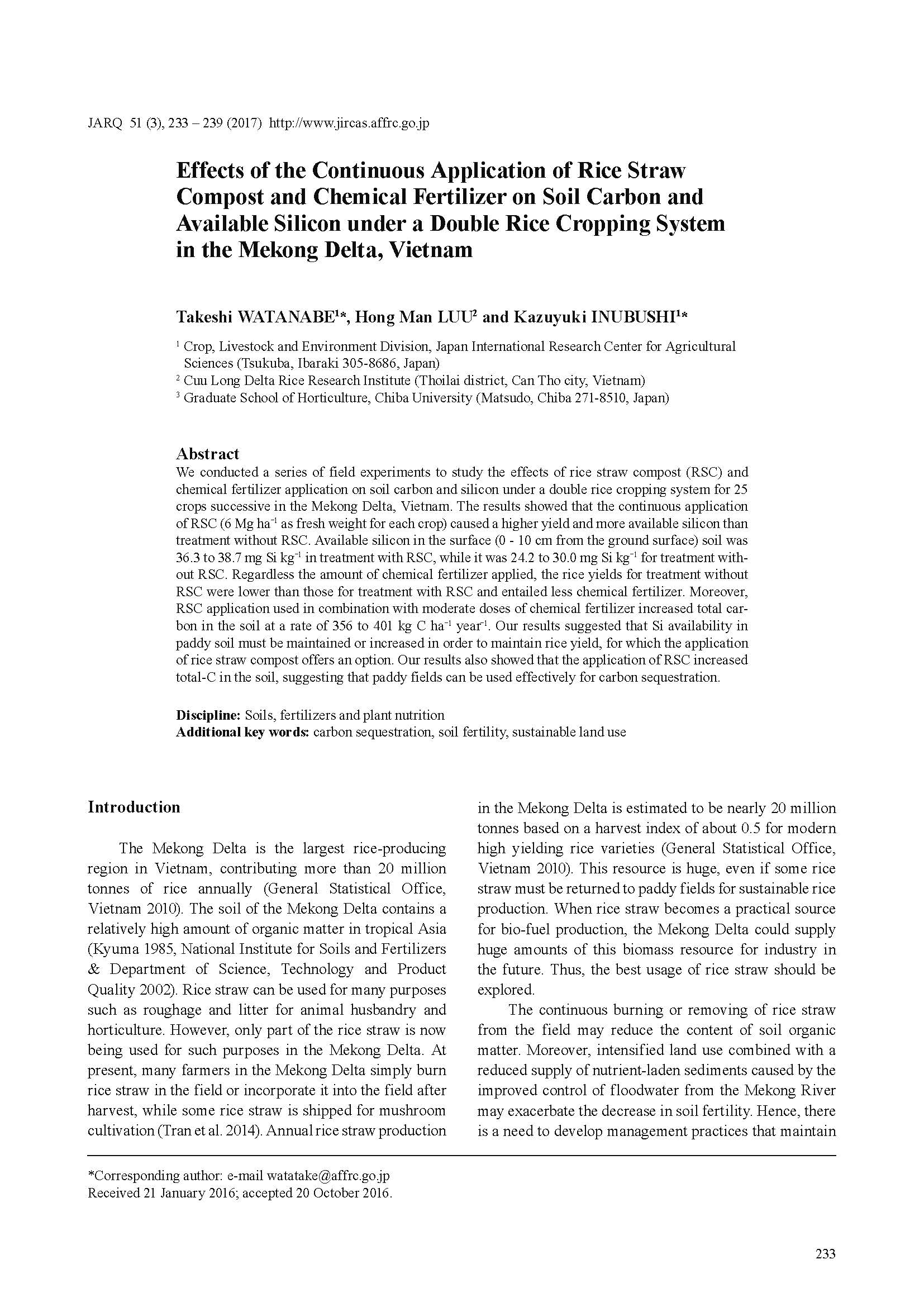Effects of the Continuous Application of Rice Straw Compost and Chemical Fertilizer on Soil Carbon and Available Silicon under a Double Rice Cropping System in the Mekong Delta, Vietnam
| ISSN | 00213551 |
|---|---|
| NII recode ID (NCID) | AA0068709X |

We conducted a series of field experiments to study the effects of rice straw compost (RSC) and chemical fertilizer application on soil carbon and silicon under a double rice cropping system for 25 crops successive in the Mekong Delta, Vietnam. The results showed that the continuous application of RSC (6 Mg ha−1 as fresh weight for each crop) caused a higher yield and more available silicon than treatment without RSC. Available silicon in the surface (0 - 10 cm from the ground surface) soil was 36.3 to 38.7 mg Si kg−1 in treatment with RSC, while it was 24.2 to 30.0 mg Si kg−1 for treatment without RSC. Regardless the amount of chemical fertilizer applied, the rice yields for treatment without RSC were lower than those for treatment with RSC and entailed less chemical fertilizer. Moreover, RSC application used in combination with moderate doses of chemical fertilizer increased total carbon in the soil at a rate of 356 to 401 kg C ha−1 year−1. Our results suggested that Si availability in paddy soil must be maintained or increased in order to maintain rice yield, for which the application of rice straw compost offers an option. Our results also showed that the application of RSC increased total-C in the soil, suggesting that paddy fields can be used effectively for carbon sequestration.
| Date of issued | |
|---|---|
| Creator | Takeshi WATANABE Hong Man LUU Kazuyuki INUBUSHI |
| Subject |
carbon sequestration soil fertility sustainable land use |
| Publisher | Japan International Research Center for Agricultural Sciences |
| Available Online | |
| NII resource type vocabulary | Journal Article |
| Volume | 51 |
| Issue | 3 |
| spage | 233 |
| epage | 239 |
| DOI | 10.6090/jarq.51.233 |
| Rights | Japan International Research Center for Agricultural Sciences |
| Relation | : J-STAGE |
| Language | eng |
